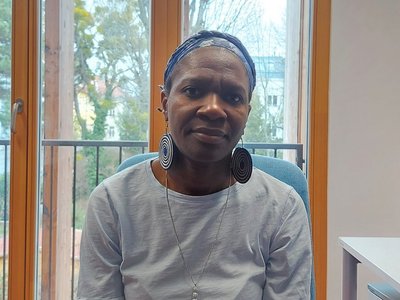

The dissertation was supervised by Univ. Prof. i.R. Dr. Willibald Loiskandl and explored the underlying reasons for low adoption of conservation agriculture in Lango region in Mid-Northern Uganda.
Although the benefits of conservation agriculture (CA) have been known for over half a century, large scale adoption in developed countries mostly occurred in the late 90's while currently very little adoption has occurred in African countries, including Uganda. CA is projected to play an important role for sustainable intensification of agriculture to ensure food security in many African agro ecological zones. It is also a potential solution to ongoing soil degradation among other challenges faced by rural farmers in an African context. The research used a combination of surveys, focus-groups, and novel modelling tools to analyse, assess and understand in detail the driving complex socio-economic impediments that limit adoption of CA. The lack of adoption is much less of a biophysical problem. The findings of the thesis are of high relevance as they provide a systematic analysis and address current constraints to improve ongoing efforts with several national and international stakeholders involved. The results of the research also provide important entry points to improve adoption of CA, not only in the Lango region, but Africa-wide, and indirectly address food sovereignty in particular in light of future climate change related production limitations.
After the completion of the thesis the opportunity to relate the findings of the research to a project “The use of multipurpose hedges for soil protection” in Lower Austria came up. According to Prof. Loislandl “this is an excellent chance for Dr. Kaweesa to learn how Austrian municipal administration is operated. Besides the scientific aspects acquired during the thesis this provides an involvement in practical application of research findings and a contact with farmers in Austria. This should also support the proposed research network on CA.”
Asked about the biggest challenges during her studies, Sara Kaweesa, mentions the unexpected, prolonged delay of publications. “During that time, I grew relentless at working on other academic tasks and also held onto the hope that it was all only a momentary process. Because I knew what I wanted, I deliberately refused to bow to pressure and stress”. Looking back at the past few years Sara feels a sense of appreciation and hope for the future: “The last few years have largely been rewarding because I have gained experiences, acquired new skills and my academic network has since grown.
In the future Sara would like to continue what she started during her PhD studies. “There are plans continue to do pilot projects coupled with applied farm research. Together with other experts, colleagues at the IDR, interested African universities and other partners, we are keen to develop a CA curriculum.”
Further information
